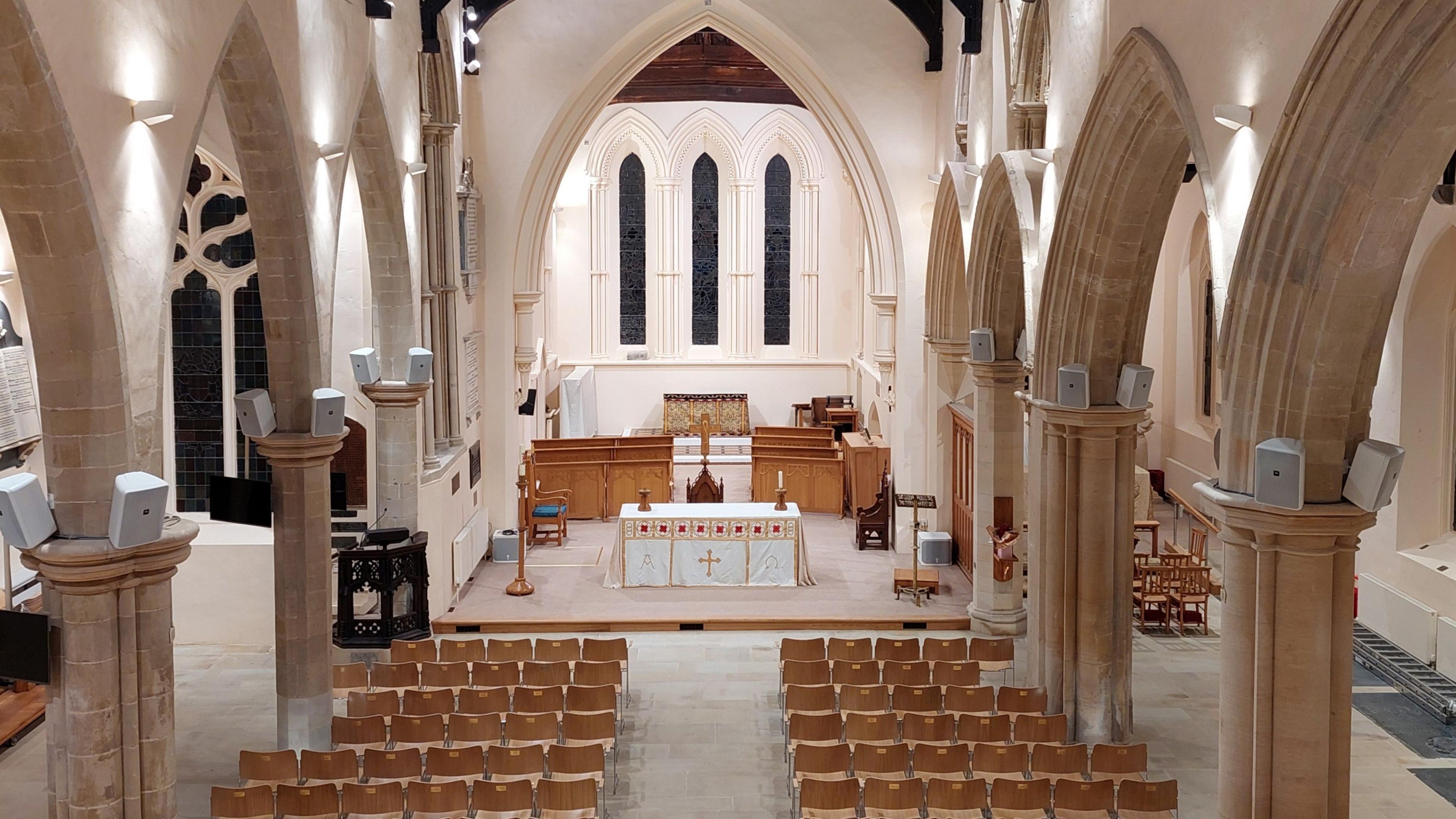Poppy cascade 'better than I thought' says knitter
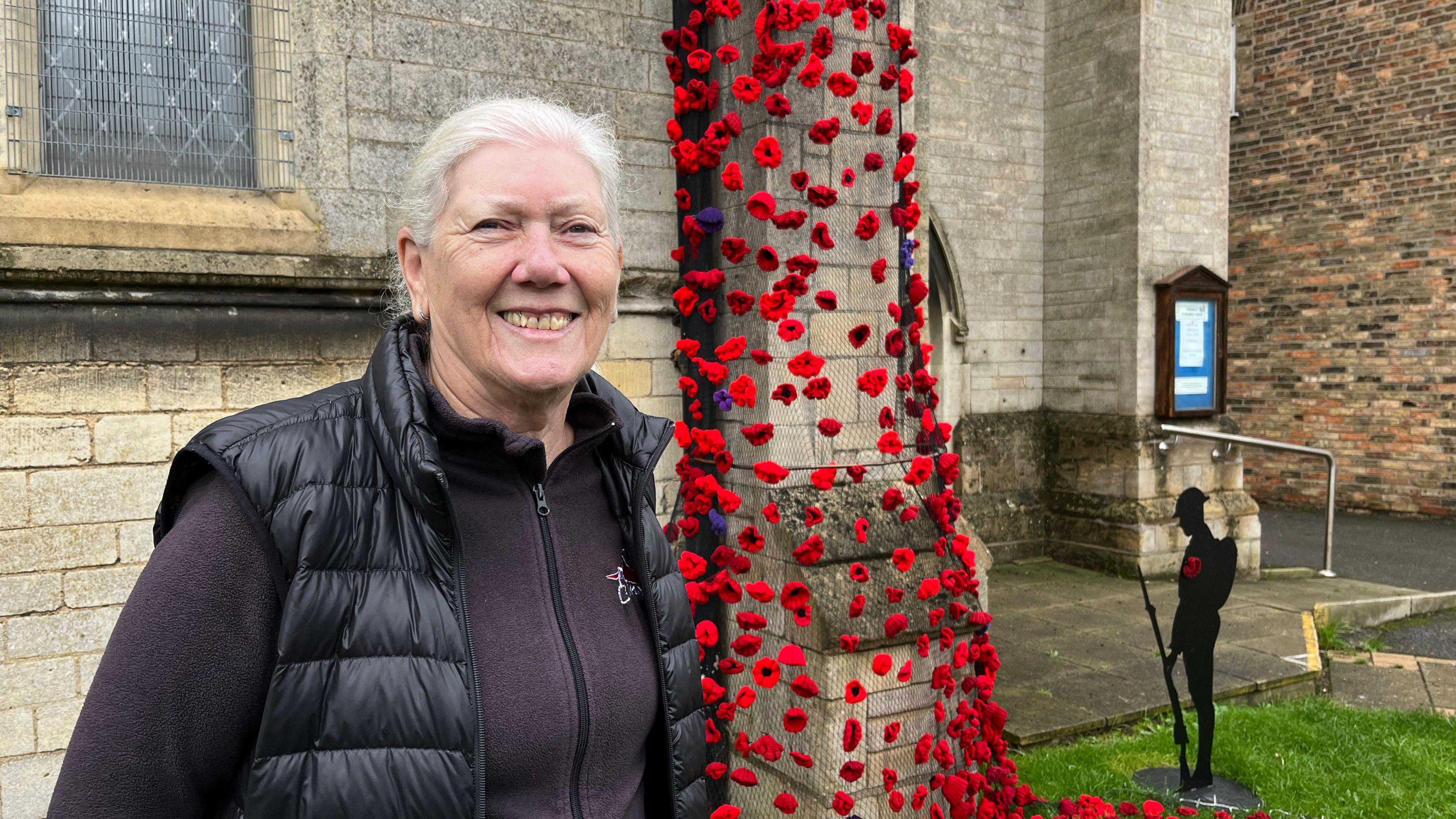
Maureen McKenna, 78, was one of the chief architects of the St Matthew's Church poppy cascade
- Published
A cascade of woollen poppies displayed at a village church turned out "better than I thought", one of its chief knitters said.
Maureen McKenna, 78, said she was inspired to create the installation at St Matthew's Church in Eye, near Peterborough, after visiting the Tower of London, which displayed thousands of ceramic poppies each November.
The poppies, which were knitted by Ms McKenna and other local people, including members of a branch of the Mothers' Union, were displayed this year to mark Remembrance Sunday and Armistice Day.
She said they will be taken down later this week before "they're taken to the launderette and washed".
"They will then be dried in my friend's kitchen and packed away for next year," Ms McKenna said.
She added that the display is "moving" and has "held together surprisingly well" over successive appearances.
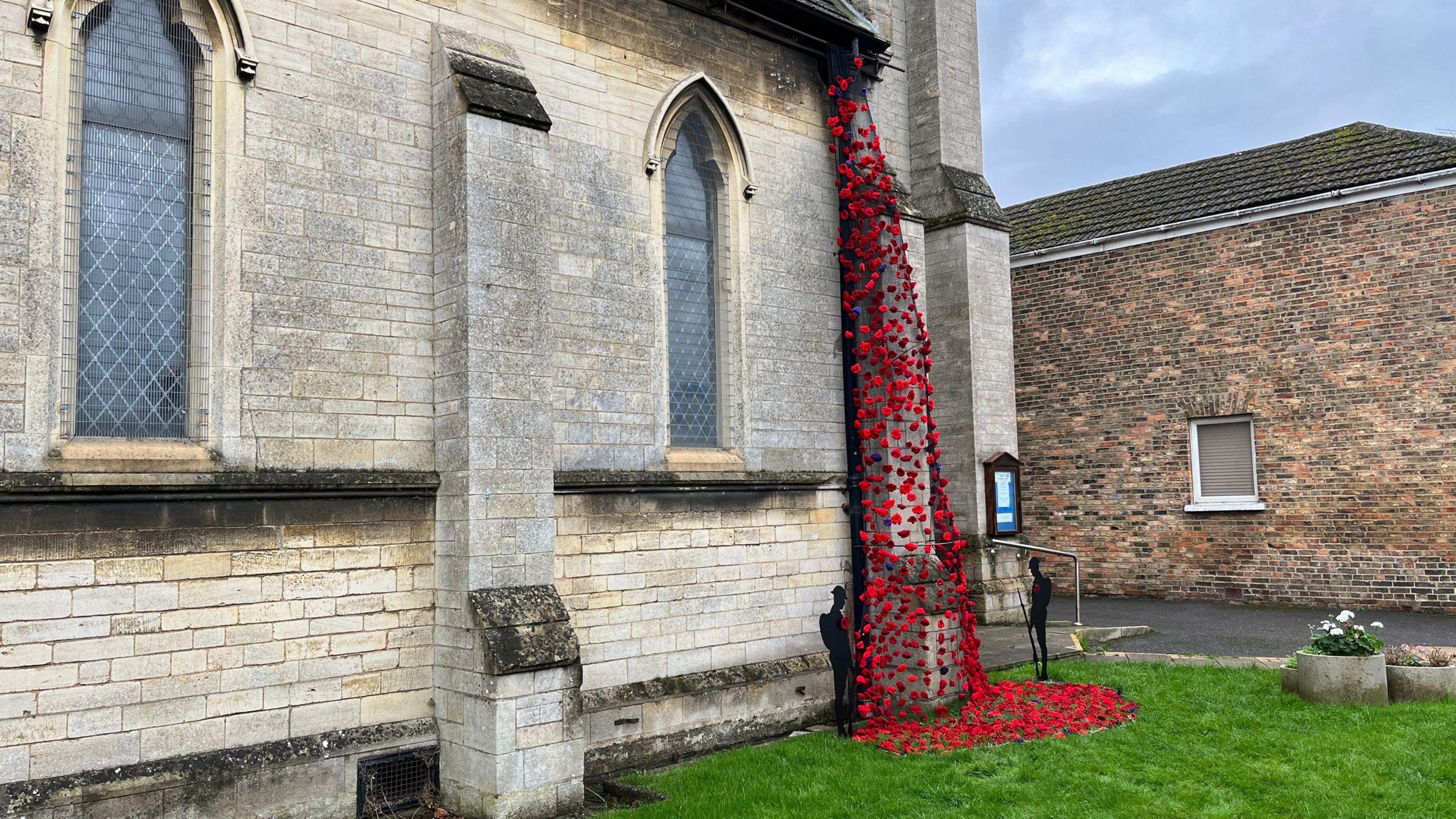
Most poppies in the display are red, but some are purple, which represents animals that served in wartime
Second World War veterans were "disappearing as a generation now," she said.
"It's important that these come up to remind young people," Ms McKenna added.
"They fought for our freedom and the peace we have in this country."
Over in Ely, knitted poppies were displayed in the city's market square and at Sessions House, made by members of a branch of the Women's Institute (WI).
These included red poppies as well as purple to represent animals that died in service, white to honour conscientious objectors and black to highlight the legacy of Afro-Caribbean soldiers, WI member Sheila Willson, 55, said.
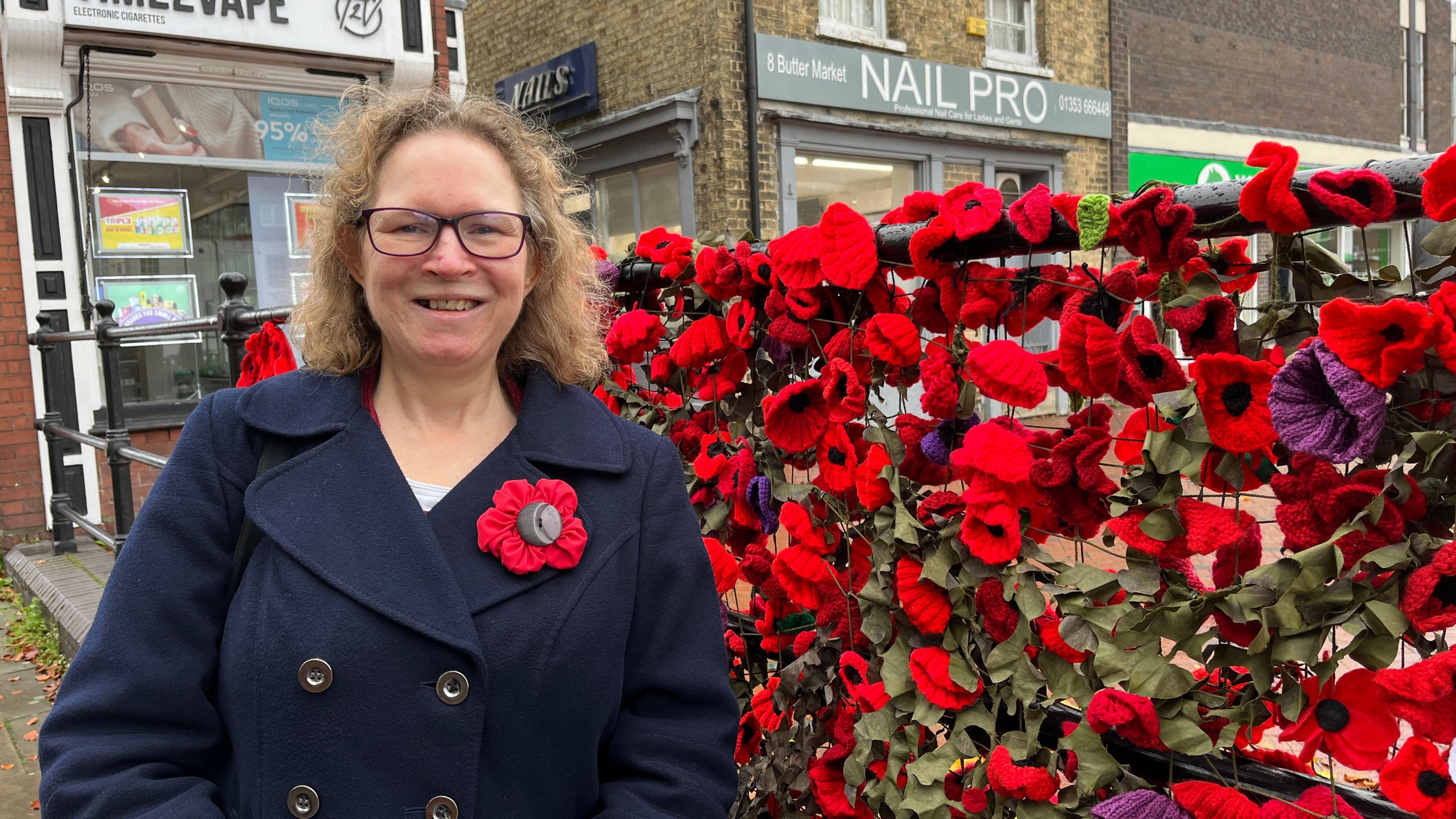
Sheila Willson, 55, said displays in Ely were made in "loving respect" by the Women's Institute
"Ely City WI members make these displays in loving respect of all people; men, women and animals who have paid the ultimate sacrifice in conflicts since the First World War," she said.
The traditional paper poppy was still popular in the city, too, said 82-year-old Patricia Canham.
She has sold poppies around Remembrance Sunday for the Royal British Legion for 17 years, to commemorate her late husband, who served in Kiritimati (Christmas Island), her father, who served in World War One and her uncles who served in World War Two.
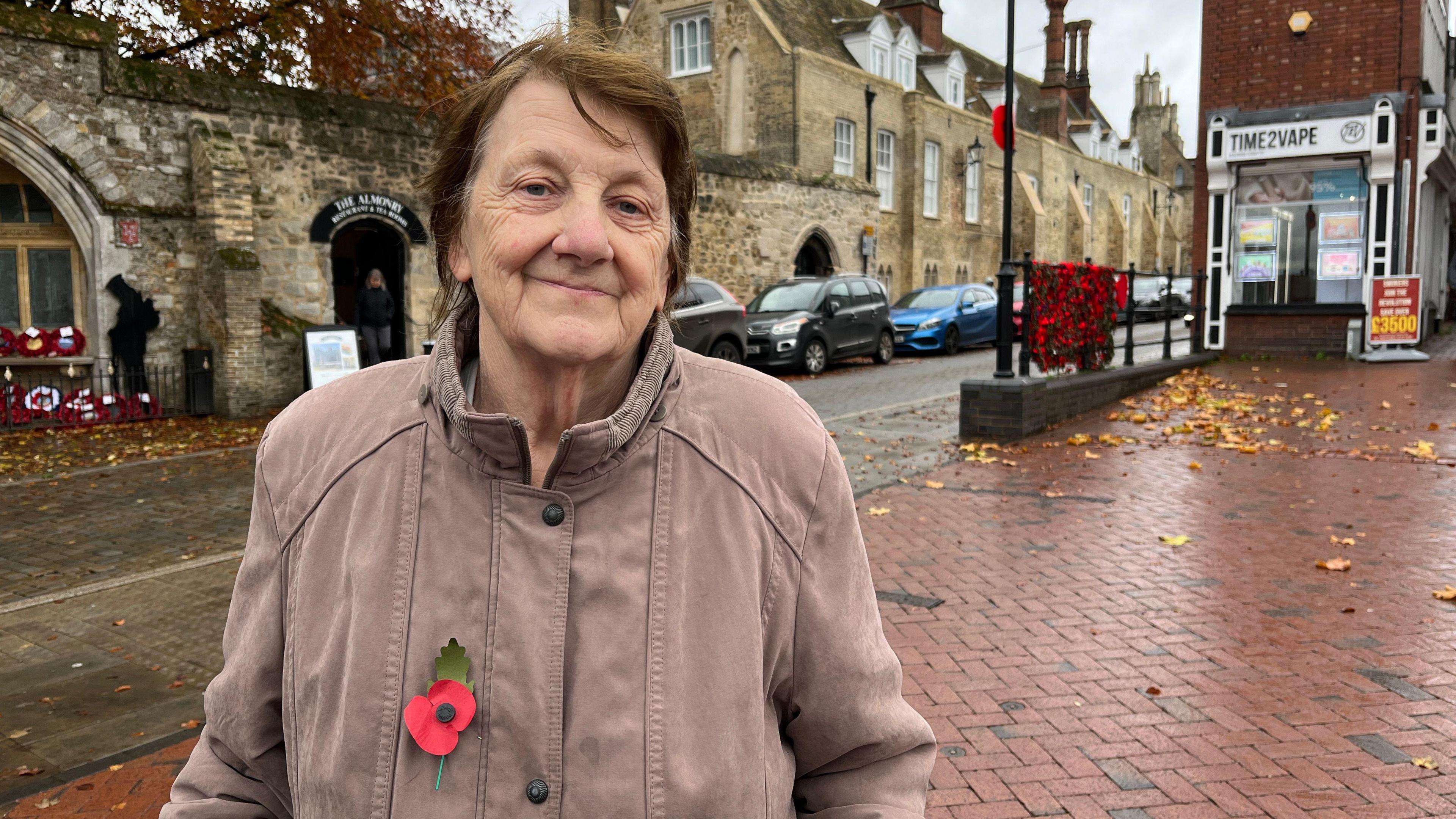
Patricia Canham, 82, has been selling poppies for the Royal British Legion for 17 years
"People are so generous and it's also sociable," she said.
"It makes you feel grateful for how things are today.
"You learn about [the world wars] at school, but knowing we had family that were involved years and years ago, it's just so nice to remember all the people that lost their lives and fought for the country."
Get in touch
Do you have a story suggestion for Peterborough?
Follow Peterborough news on BBC Sounds, Facebook, external, Instagram, external and X, external.
More stories like this
- Published6 November
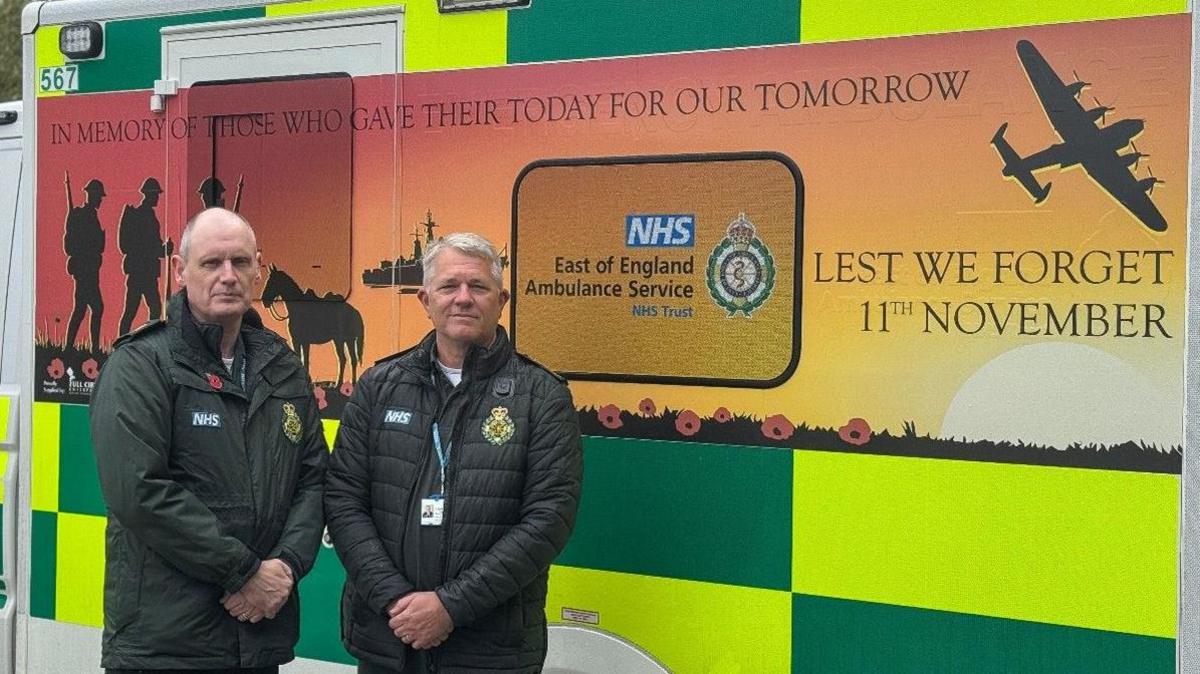
- Published6 November
